News & Headlines
Check here for the latest news and headlines of what's going on in the Nigerian telecommunications industry and the activities of the Nigerian Communications Commission
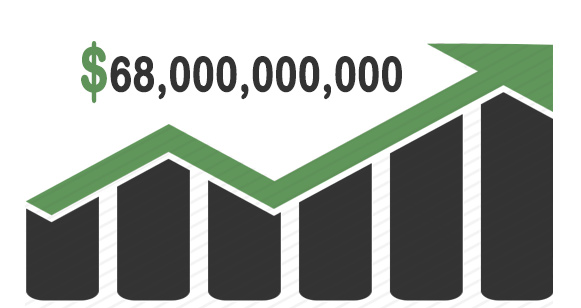
- Details
- Written by: Tony Ojobo
Despite what looks like economic downturn, investments in the fast growing telecommunications sector have been put at $68b as at July, 2016.
Of this figure, $35b comes from Foreign Direct Investments (FDIs)
The immediate past Secretary General of the International Telecommunications Union (ITU), Dr. Hamadoun Toure as keynote speaker at the Nigerian Telecoms Investment Forum at the just concluded ITU Telecom World 2016, Bangkok, Thailand said these figures recorded so far in Nigeria point to the fact that “the country is certainly a preferred destination for telecommunications investors in Africa”.
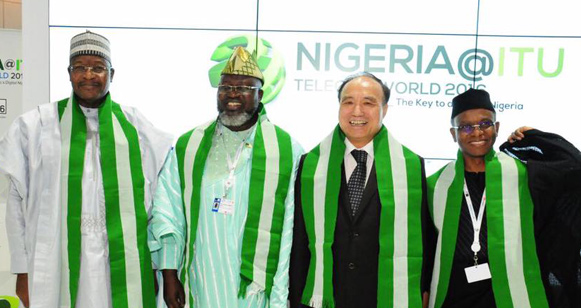
- Details
- Written by: Yakubu Musa
By all standards, Nigeria had a very impressive outing at ITU Telecom World, Bangkok 2016. This was no accident. Everything was painstakingly organized. Thus the seriousness Nigeria attached to the conference was not only symbolized in the country’s majestic pavilion at the occasion but was also glaringly evident in the caliber of networth individuals assembled to project its ICTs investment potential to the rest of the world. ITU Telecom World represents the ultimate pilgrimage for the top echelons of the industry’s finest. It's where they congregate, brainstorm and make far-reaching recommendations on how to move, unarguably the most dynamic industry in the world, forward. It’s one huge convergence that every nation hopes to explore to flaunt, to the rest of the world, what it has in abundance and thus ready to offer.
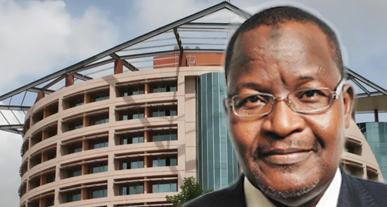
- Details
- Written by: Yakubu Musa
Mr. Tony Ojobo, the quintessential public relations guru in charge of public affairs of the Nigerian Communications Commission (NCC), describes it as "remarkable shift" in the history of the leadership of the regulatory body. It's, undoubtedly, not the kind of testimony that you often hear from the mouths of consummate public servants like Ojobo. Yet, there's so far been a notable consensus on Professor Umar Garba Danbatta's one year at the helm of affairs of the NCC. It's gratifyingly positive. And, it bodes well for the future of the industry.
From the Director-General of Consumer Protection Council (CPC), Mrs. Dupe Atoki, who once commended the NCC boss for "ensuring that impunity in telecom sector is beginning to be a thing of the past", to the revered Emir of Kano, Muhammadu Sanusi II, who gave him a pat on the back for "already changing the landscape of the nation's telecom regulation for the better", there has never been shortage of approval for Danbatta's leadership at the Commission.
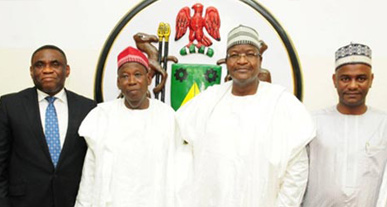
- Details
- Written by: Okoh Aihe
That telecommunications services have gained traction in Nigeria can only be evidenced by the encouraging figures coming out of the industry. Apart from the monthly reports of the Nigerian Communications Commission (NCC) which put subscription figures at 226,426,215 connected lines for the month of July, 2016, 150,262,066 active lines, 92,181,178 internet subscribers and a teledensity of 107.33% within the same period, the National Bureau of Statistics (NBS) also recently ascribed huge growth rate to the sector.
According to the NBS figures, the telecommunications sector of the Nigerian economy contributed N1.580 trillion to gross domestic product (GDP) in the second quarter of 2016, or 9.8 per cent, which represents an increase of 1.0 per cent points relative to the previous quarter.
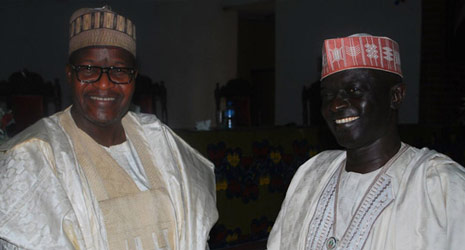
- Details
- Written by: Media Team
Prof. Umar Garba Danbatta, Executive Vice Chairman of the Nigerian Communications Commission, has said that although poverty can be pervasive in developing countries, the Nigerian Government is using the potency of ICTs to tackle it frontally. To this end, the Government has set up various ICT intervention agencies and programmes to contain poverty in the face of unexpected oil revenue crash.
Danbatta also said that the strategic vision of the Commission which is anchored on an 8-point agenda, among them, Facilitate Broadband Penetration, Improve Quality of Service, Optimize Usage and Benefits of Spectrum, Promote ICT Innovation and Investment Opportunities, and Promote Fair Competition and Inclusive Growth, just to name a few, will contribute in no small measure to Government’s efforts in fighting poverty with ICTs.
However, in the pursuit of ICTs for development and poverty reduction three things are very important. They are the three As – Access to Service, Availability of Service and Affordability of Service.
